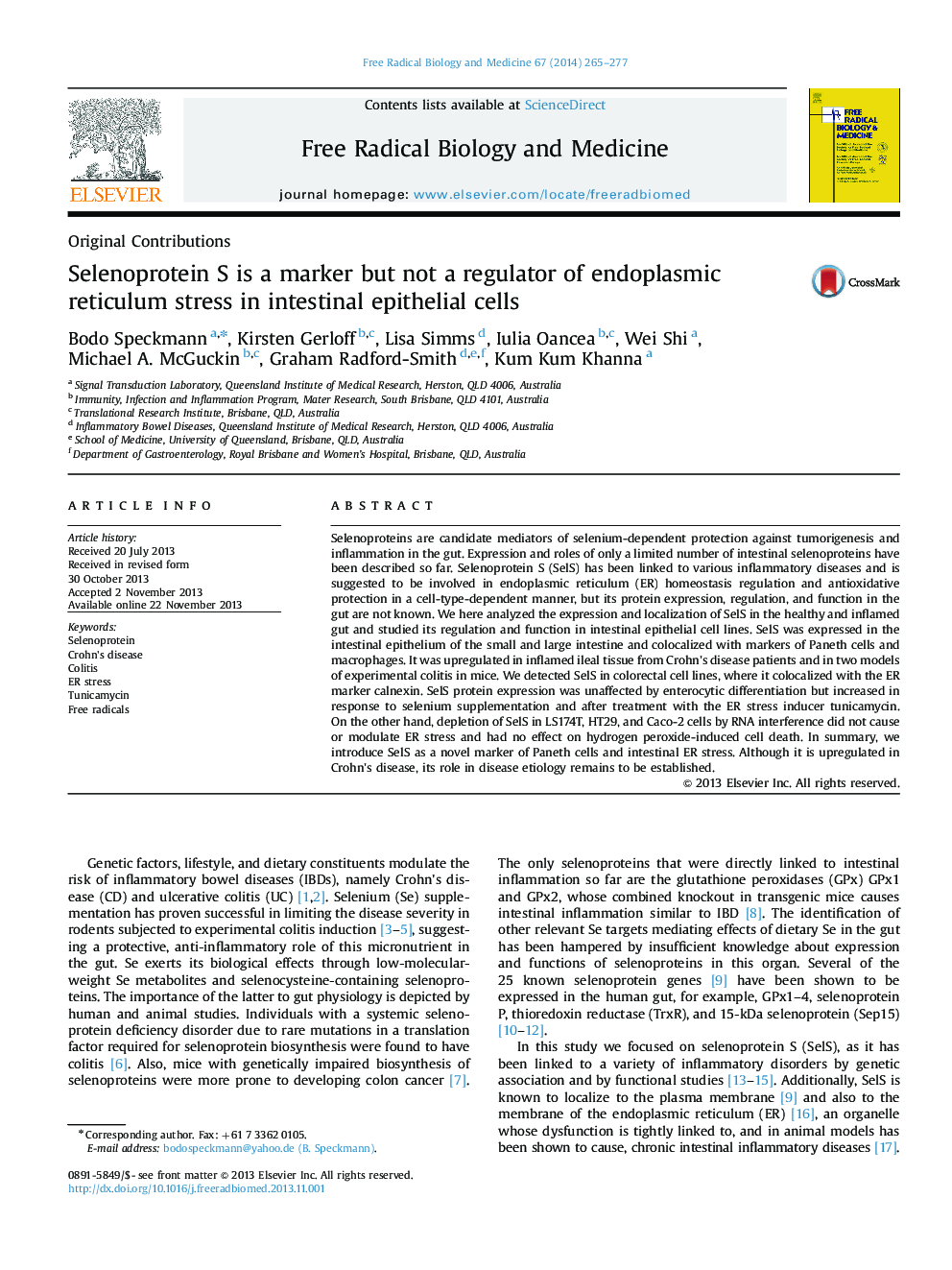| Article ID | Journal | Published Year | Pages | File Type |
|---|---|---|---|---|
| 8271040 | Free Radical Biology and Medicine | 2014 | 13 Pages |
Abstract
Selenoproteins are candidate mediators of selenium-dependent protection against tumorigenesis and inflammation in the gut. Expression and roles of only a limited number of intestinal selenoproteins have been described so far. Selenoprotein S (SelS) has been linked to various inflammatory diseases and is suggested to be involved in endoplasmic reticulum (ER) homeostasis regulation and antioxidative protection in a cell-type-dependent manner, but its protein expression, regulation, and function in the gut are not known. We here analyzed the expression and localization of SelS in the healthy and inflamed gut and studied its regulation and function in intestinal epithelial cell lines. SelS was expressed in the intestinal epithelium of the small and large intestine and colocalized with markers of Paneth cells and macrophages. It was upregulated in inflamed ileal tissue from Crohn's disease patients and in two models of experimental colitis in mice. We detected SelS in colorectal cell lines, where it colocalized with the ER marker calnexin. SelS protein expression was unaffected by enterocytic differentiation but increased in response to selenium supplementation and after treatment with the ER stress inducer tunicamycin. On the other hand, depletion of SelS in LS174T, HT29, and Caco-2 cells by RNA interference did not cause or modulate ER stress and had no effect on hydrogen peroxide-induced cell death. In summary, we introduce SelS as a novel marker of Paneth cells and intestinal ER stress. Although it is upregulated in Crohn's disease, its role in disease etiology remains to be established.
Related Topics
Life Sciences
Biochemistry, Genetics and Molecular Biology
Ageing
Authors
Bodo Speckmann, Kirsten Gerloff, Lisa Simms, Iulia Oancea, Wei Shi, Michael A. McGuckin, Graham Radford-Smith, Kum Kum Khanna,
